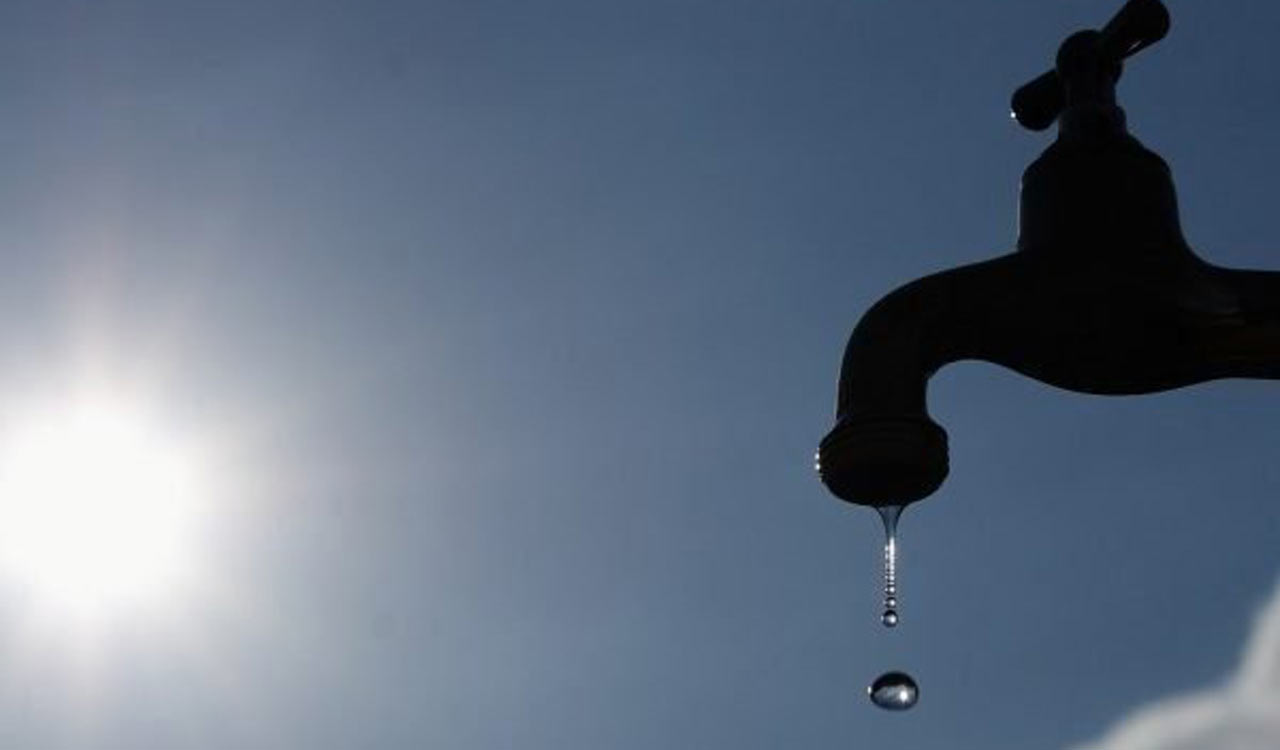The State had multiple spells of high intensity rainfall adding more to the flood runoff. Much of the rainwater could not be harnessed.
Published Date – 27 March 2024, 07:54 PM

Representational Image
Hyderabad: Indiscriminate drilling of bore wells targeting exploitation of the ‘static ground water resources’ has turned out to be a major concern in the State of late.
The phenomenon is being experienced more in the command of the major irrigation projects including the districts of Nalgonda, Ranga Reddy and Nagarkurnool in Krishna basin and parts of Bhadradri Kothagudem and Nizamabad in Godavari basin.
This situation owed to the over exploitation of the “dynamic resources” of ground water that get recharged annually even with normal rainfall and help meet the water needs of the communities living around.
This trend has been observed this year over 100 revenue mandals because of over exploitation of groundwater contributing to plummeting groundwater levels. In certain places the drop is ranging from 15 metres to 20 metres.
After several years of substantial improvement in the groundwater table, the declining trend is observed this year in certain pockets.
The drop in the groundwater level cannot be attributed to the lack of rainfall. The State, on the whole received some 6 per cent more rainfall compared to normal till February last.
But much of the rainfall occurred only in the first two to three months during the monsoons.
The State had multiple spells of high intensity rainfall adding more to the flood runoff. Much of the rainwater could not be harnessed.
Heavy downpours and cloud bursts that bring in flash floods would not help in adding to the groundwater table. As Groundwater Department officials put it, there is absolutely no control over the drilling of the new bore wells.
Even as the provision of Water, Land and Tree Act ( WALTA) was intended to regulate the bore well drilling, no serious effort was made to discourage exploitation of static groundwater resources recharge of which would take even decades.
Farmers in Nalgonda and other neighbouring districts, faced with shortage of water for their crops, were competing with each other in exploitation of groundwater reaching out to greater depths.
The trend is catching up even in the command of the Godavari basin projects. The paddy farmers in Kamareddy district, who are depending mainly on groundwater during the Yasangi season were facing acute scarcity conditions as the bore wells were going dry.
The over exploitation for irrigation purposes will trigger a drinking water crisis too.
Nearly 80 per cent of State is rocky terrain and water availability is confined to the fractures in the system. In such areas, there is a need to restrict the groundwater exploitation to the dynamic ground water resources, stressed officials.
They said that the latest reports on the groundwater levels will be obtained by the end of the month and the analysis of data could take another two to three days for the preparation of the final report.
But on the whole, the situation is critical in many mandals and this can be attributed mainly to lack of control over the private drilling of bore wells, they said.


